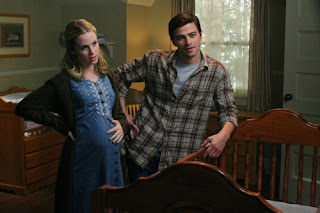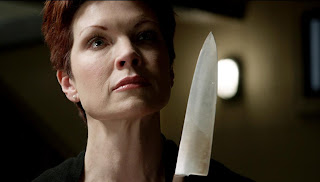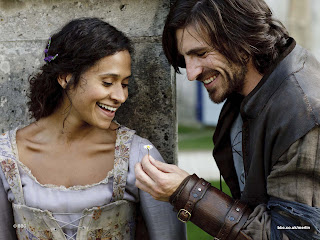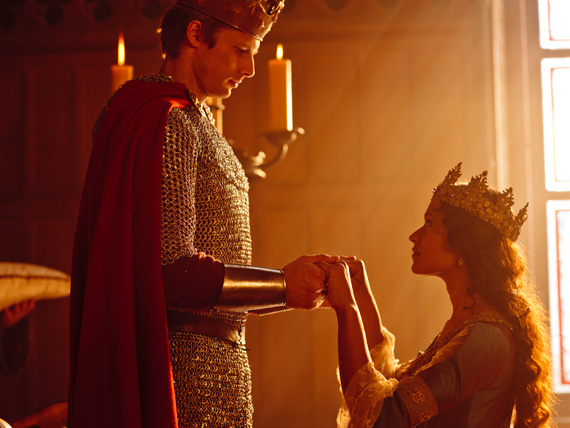I watch, read, and occasionally listen to a lot of urban
fantasy. It’s enough so that I’ve kind of started to notice a trend. By which I
mean, I’ve noticed a lot of trends. This one hit me over the head with all the
subtlety of a brick made out of hammers.
No urban fantasy hero or heroine has a functional family.
Well, okay, maybe one or two. But they are strong outliers.
Why is that? Isn’t that weirdly specific? It’s like Disney’s
vendetta against mothers. While I completely understand that some of the
characters would be parentless or bogged in unpleasant family situations
because the plot needed them to, it’s getting kind of weird.
I mean, Harry Dresden’s parents are both dead. He was raised
by his uncle, who is also now dead. Connor Grey’s parents are pretty much never
mentioned (at least not in the first four books). He has no siblings that I
know of (yet). Elena Michaels is an only child, and I don’t recall much about
her parents. Nothing important, anyway.
Buffy’s parents are divorced, Willow’s parents ignore her,
Xander’s are abusive, and Giles’ have disowned him. Oh, and Cordelia’s parents
buy her off with presents, Angel’s were also abusive, and Tara’s tried to
convince her that she was an evil demon. Literally the only character with a
stable childhood environment is Spike. Spike.
Or take Teen Wolf.
Scott’s parents are divorced and his father is implied to be abusive. Stile’s
mother died of cancer. Both their remaining parents work all the time (though
are very loving). Derek’s whole family is dead. Isaac’s mother is gone, his
father was abusive, and his older brother is dead. Erica and Boyd’s parents are
clearly neglectful, since they let their kids hang out with a creepy older guy
at the abandoned subway station for days
on end. Allison has two parents, but they’re both crazy, sooo…
And, of course, we can’t forget Supernatural or Harry Potter
(which is, for the purposes of this article, urban fantasy). Dean and Sam’s
parents are both dead, their grandparents are dead, their cousins are dead, and
they’ve both died more times than Kenny on South
Park. In Dean’s case, yes, literally. And not only are Harry’s parents
dead, but by the end of the seventh book, literally everyone they were friends
with or even talked to at school is dead.
What. The. Hell?
Okay, from a literary standpoint, it does make sense to give
the gritty hero or heroine of an urban fantasy franchise a rather fraught
background. It makes the stakes higher if the hero doesn’t have a strong
emotional support network to fall back on in times of stress. I totally get why
some writers would do that.
 |
| The doomed Winchesters. |
But everybody? Come on guys, someone needs to be a little
more creative here! (Speaking of which, major props to Amber Benson for leaving
Calliope’s parents alive in her Death’s
Daughter series. Fight the power!).
More than this, though, I feel like the great urban fantasy
vendetta against families has to do with the nature of the material. It’s about
monsters and magic and the scary things under the bed. Having family around for
our characters tends to lessen the impact.
Think about it. When you were little, if you were a monster
fearer like I was (I had two big windows in my room that faced out onto a
forest – my fears were pretty standard), your parents were the ultimate safety.
As long as they were in the room, nothing could hurt you. Again, I generalize,
but you get the point.
In urban fantasy, we need our heroes to be scared. We need
them backed into a corner, forced up against impossible odds, and we need them
to be in danger. We absolutely cannot have their parents popping up and making
everything better. Even for a minute.
Urban fantasy that’s set in a high school or other
environment has the additional logistical problem of needing teenaged
characters who can go out at all hours of the night without being punished or
even really noticed. It’s easiest for the writers to just give them all crappy
homelives. Maybe they want to explain too why the characters choose to creep
around graveyards at night. It’s to avoid going home.
Or, if the parents do show up, which they do sometimes, we
can’t have them be the actual solution. Either they know nothing about the
supernatural and are really more of a hindrance than anything, or they’re
actively working against the plot and must be avoided at all costs. Sometimes,
both.
So, yeah, I get why urban fantasy heroes have little to no
family or healthy relationships. But I still think it’s wrong.
Look, human beings are social creatures. We thrive in
community with each other. This doesn’t mean we can’t be scared together. And
it really doesn’t mean that any hero whose parents are still around/functional
is a whimpering momma’s boy. What it means is that you should try harder to
write interesting characters.
Just because it isn’t easy to write an urban fantasy hero
with a strong support network doesn’t mean it can’t be done, and it definitely
doesn’t mean it shouldn’t be done. It can and should. Yes, by getting rid of
the family ties we heighten the stakes, but we also cheapen the drama. It’s
usually the first step down an escalation of badness (or the slide of suck, as
I called it in another article), from which there is no return.
I hold out real hope for an urban fantasy family that doesn’t
splinter. Where the writer doesn’t bow to the obvious and discount the parents.
And where the convenience of absent and dead parents doesn’t outweigh the story
potential of adult characters in an urban fantasy world.
| As a sidenote, Spike's backstory is hilarious. |




















